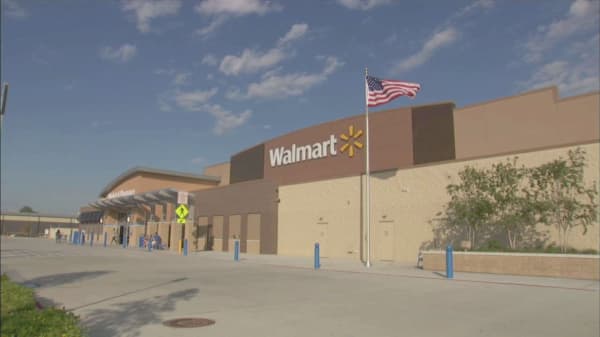We see this happening first-hand, every day. And it's hardly a passing fad. Throughout our 10 years of close collaboration, Walmart and EDF have found that sustainability initiatives like Project Gigaton can drive emissions reductions and business value. This occurs through improved operations, reduced waste and cost, and revenue acceleration from supportive consumers.
But are enough organizations thinking sufficiently long-term about these issues – and putting in place the strategies that are designed to ensure their success beyond the next quarter or annual meeting?
In Walmart's case, it wasn't until 2005 when Hurricane Katrina – that "one hundred year storm" – struck the U.S. Gulf Coast. The company embraced its unexpected role as an early responder, providing thousands of truckloads of supplies and donated goods, while also helping coordinate relief efforts.
In Katrina's aftermath, the company vowed to consider the long-term implications of the storm and to try to become a "positive, difference-making company every day." It started an ambitious journey to lower emissions, cut waste, and sell more sustainable products in its stores.
Fast-forward to today. Project Gigaton is simply the most recent manifestation of that strategic direction, another in an evolving series of practices designed to help address long-term global challenges and improve people's lives.
Yet at its core is an important realization: organizations of all sizes can make a noticeable, sustainable impact on the environment as well as improve business performance over the long term.
According to a joint report published by the World Wildlife Fund and CDP, U.S. businesses that commit to annually cutting their carbon emissions can collectively reap as much as $190 billion in savings from reduced energy bills, increased productivity and other associated benefits.
Another study found that companies devoted to sustainability efforts reported significantly higher mean sales growth, return on assets, profit before taxation, and cash flows from operations compared to sustainability slackers.
So what's stopping more companies from focusing on ways to improve their sustainability and capturing the associated economic benefits?
One factor may be the belief that their contributions are meaningless given the size and complexity of environmental issues. But that is flawed thinking. All contributors can make an impact, and collectively can reduce emissions that are having such a negative effect on our world.
For Project Gigaton, Walmart and EDF collaborated with NGOs and other like-minded organizations to create an emissions reduction toolkit that offers a business case for cutting emissions. While designed for the company's supply chain, the principles embedded in these strategies, resources and implementation tactics can easily be customized and adopted for other like-minded organizations.
We're happy to share it, just as we all share the same environment. And we encourage you to look anew at your own operations and supply chain for sustainable ways to improve them. 2030 is coming sooner than you think.
Commentary by Kathleen McLaughlin and Diane Regas. McLaughlin is the chief sustainability officer for Wal-Mart Stores, Inc., and the president of the Walmart Foundation. Regas is executive director at Environmental Defense Fund.
For more insight from CNBC contributors, follow @CNBCopinion onTwitter.
Watch: Wal-Mart shareholder day full of surprises





